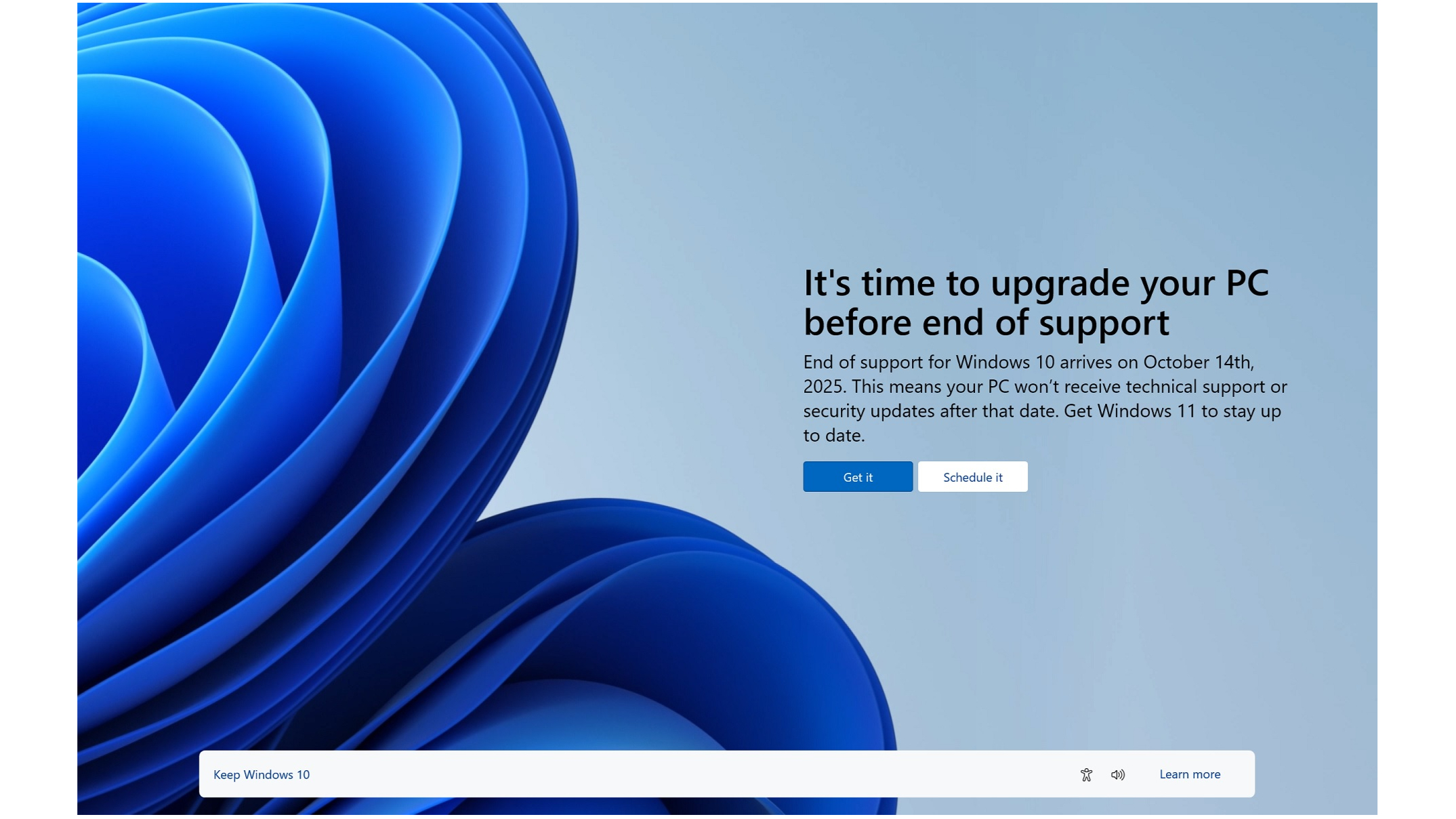
With just a year and a few months to go before Windows 10 reaches its end-of-support date, Microsoft’s strategy to implore Windows 10 users to move up to Windows 11 has been pretty poorly executed. Windows 10 users have been struck by annoying ad campaigns that are invasive and oftentimes take up the full screen, or pop up incessantly.
However, Microsoft has vowed to back off due to the backlash it’s received from users regarding a full-screen pop-up urging folks on Windows 10 to upgrade to Windows 11. Kind of, anyway - as the not-so-good news is that this change of course from Microsoft won't benefit most of you out there, namely those using Windows 10 Home.
As Windows Latest reports, Microsoft has made the decision that “to honor our user’s feedback, these invitations [full-screen pop-ups] will no longer begin with the April 2024 monthly security update. We will share a new timeline in the coming months.“
The catch? As Windows Latest makes clear, the pop-up will still appear for Windows 10 Home users, but those of you running Windows 10 Pro won't see it anymore (neither will business users).
Of course, we can still celebrate this as a definite step in the right direction - and we can be hopeful that maybe, just maybe, it'll come to Windows 10 Home before too long. Especially if Microsoft gets more feedback (hint, hint) on this annoying pop-up from everyone out there (flex those typing fingers).
That said, it’s also not clear if Microsoft is giving up entirely on this approach (for non-Home users), or if the company is just planning a more low-key way of prompting those users to upgrade without getting a lot of flak.

Windows 11 has received a bigger share of the market recently, with more people swapping over to the new operating system, so it seems somewhat pointless for Microsoft to harp on the topic, especially with the end-of-life date basically ever-present in many people’s minds.
People are still reluctant to move over to Windows 11 for a number of reasons, including persistent bugs and flawed update layouts, glitchy Start Menus, and strict system requirements. Users may also be reluctant to embrace Windows Copilot and the other AI features that have been popping up on Windows 11.
In all honesty, these massive pop-ups have probably driven more people away from Windows 11 than towards it, similar to the way a lot of people feel rather turned off by the Edge popups that come up when you use the browser to download alternatives like Google Chrome or Opera GX.
We can only hope for Microsoft’s sake that the company takes this licking as a lesson and avoids making the situation worse - and as noted, brings this cessation of the full-screen upgrade nag to Windows 10 Home users as well.
You might also like...
- Windows 11’s latest update brings in some minor but nifty tweaks – and an important fix for a nasty bug
- Windows 11 Pro users beware: Microsoft's BitLocker encryption could be seriously slowing down your PC
- Windows 11 users, good news – the Start menu could get a fresh new look to make your apps more manageable







